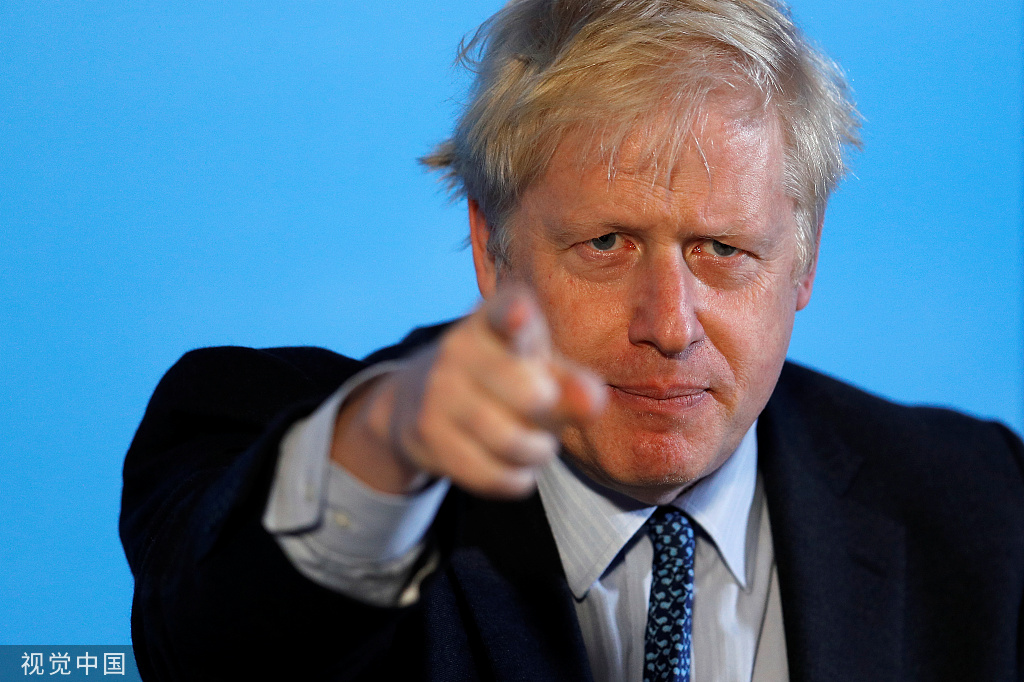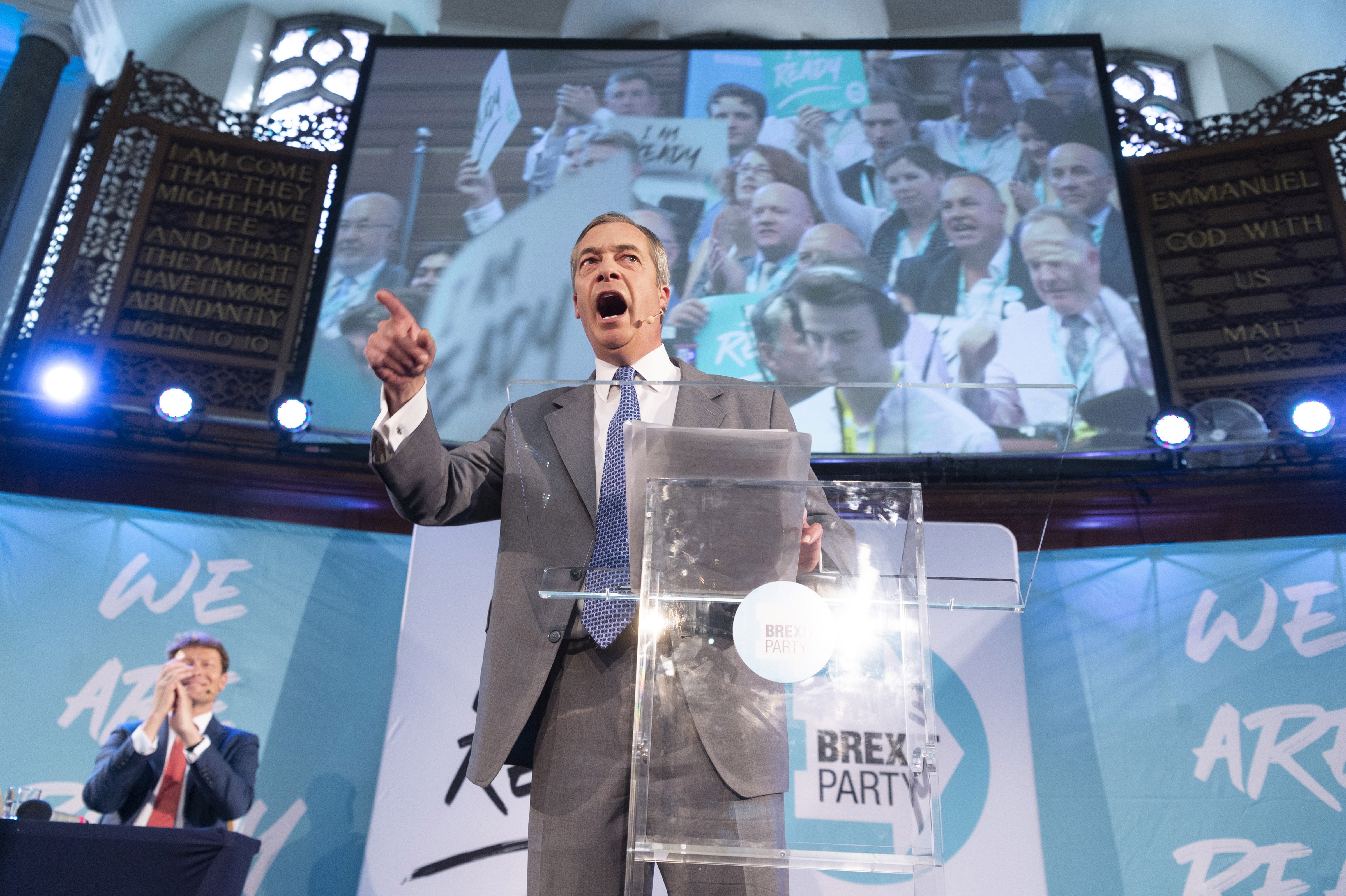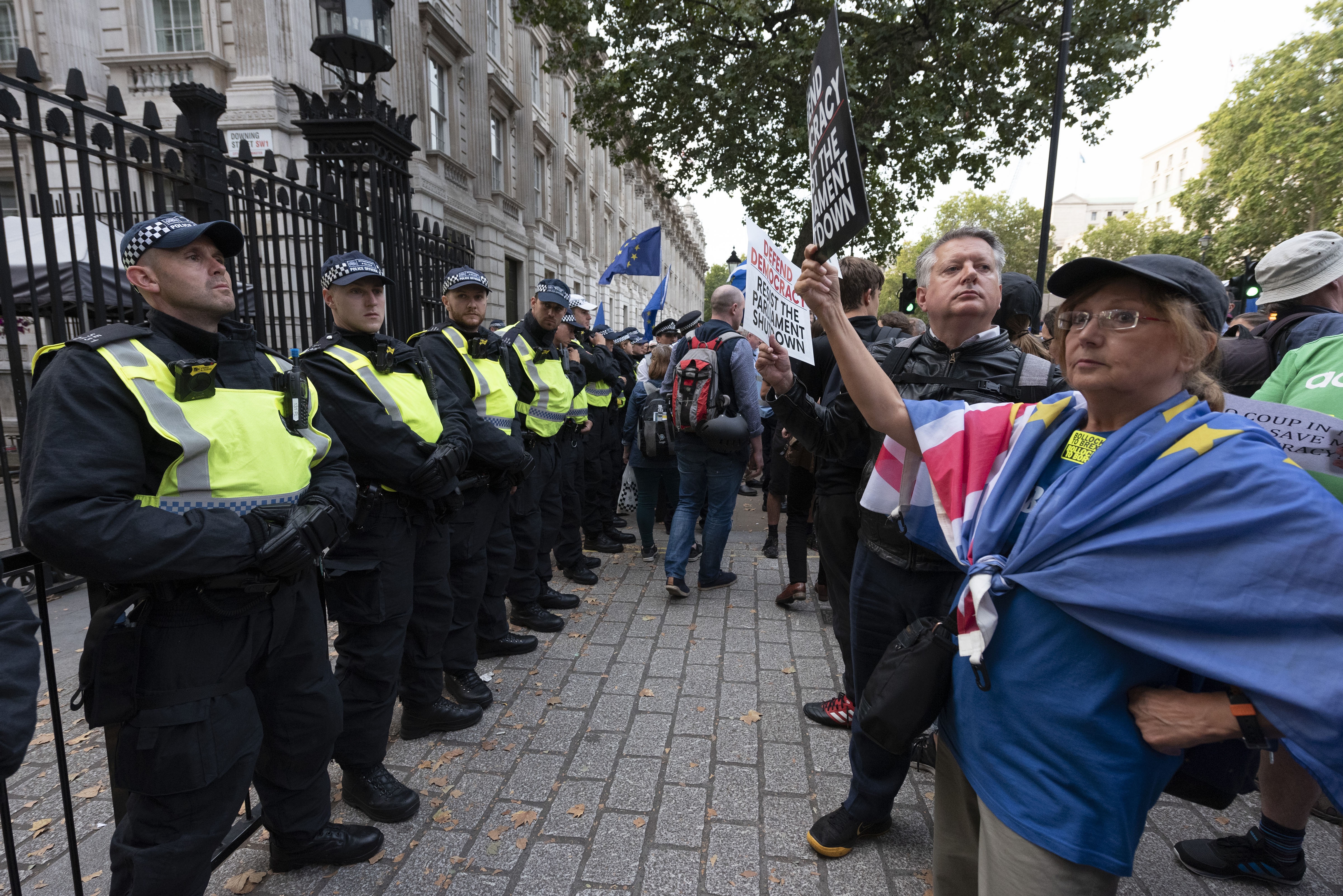Johnson adopts dangerous gambit to force through Brexit
- By Heiko Khoo
 0 Comment(s)
0 Comment(s) Print
Print E-mail China.org.cn, August 31, 2019
E-mail China.org.cn, August 31, 2019

British Prime Minister Boris Johnson has ordered the proroguing or suspension of parliament, in order to thwart attempts by opposition MPs to stop a no-deal Brexit on Oct. 31. The Queen granted his request.
This means Parliament now has a very narrow window to pass a law that might force Johnson to seek another delay from the EU in regard to leaving the organization.
Johnson's maneuver enraged the majority of MPs, who are opposed to leaving the EU without a deal that many fear will create havoc and damage the fragile national economy.
Protests have been called for Sept. 3, the day the new parliamentary session is just to begin but with only a week to conduct vital business before the suspension.
In these circumstances, even if the EU were to agree a compromise with Johnson on the post-Brexit Irish border arrangements, it is unlikely such a deal could be agreed by Oct. 31.
Since being elected Conservative Party (Tory) leader and thereby assuming the role of Prime Minister, Johnson has adopted an intransigent position towards both the EU and parliament.
He has also announced a raft of policy proposals – to crackdown on crime, increase police numbers, modernize the internet infrastructure, and increase school budgets. In the eyes of most pundits, this indicates Johnson is preparing for an imminent General Election.
The Labor Party leader Jeremy Corbyn has hoped to gain the initiative by calling for a no-confidence vote as a preliminary to forming a new temporary government, delay Brexit and force an election.
However, Liberal Democrat MPs and Tory rebels opposed to Johnson's maneuvers to sideline parliament, are so virulently hostile to Corbyn that, although a no-confidence vote may win a majority, the subsequent formation of a Corbyn-led caretaker government seems unlikely.
Johnson presides over an unruly Tory party. The majority of its MPs want to remain closely tied to the EU, but party members elected Johnson precisely because he said he would leave the organization on Oct. 31 "do or die."

His bellicose stance is driven by the victory of Nigel Farage's Brexit Party at the European Parliament elections in May, when they took 31.6% of the vote compared to 9.1% for the Tories.
By donning Farage's "hard Brexit" mantle, Johnson aims to reverse the hemorrhaging of Tory support through calling a "people versus parliament" election, to be held after Brexit has happened.
In this rhetoric, the "people" refers to the 17.4 million (just over 53 percent of the vote) who opted to leave the EU in the 2016 referendum, and "parliament" means those MPs who campaigned to remain in the EU at that time, and who reject a no-deal Brexit.
Indeed, it was the virulent opposition of the 10 MPs from Northern Ireland's Democratic Unionist Party (DUP), the Tory's ally in parliament, who guaranteed that the deal negotiated with the EU by Theresa May was rejected on three occasions.
It was the DUP and the right-wing European Research Group (a lobby inside the Tory party) who scuppered the deal – not those MPs who voted remain. It was conflict inside the Tory party that led to the current political paralysis, a fact that Johnson wants the public to forget.
In the light of this, it is Nigel Farage's Brexit party, with no MPs at present, that is setting Johnson's agenda. Farage would be happy to make an electoral pact with Johnson, in which Tory candidates who support a no-deal Brexit on Oct. 31 will be endorsed, while the party will stand against any Tory candidate who supports a deal with the EU.
If Johnson fails to enforce a no-deal Brexit on Oct. 31, the Tory party will face a catastrophic electoral collapse, as an insurgent Brexit Party will crush it. In fact, the entire Brexit crisis is a product of the Tory party's long-term internal divisions over Europe.
This issue has festered and erupted time again over the last 40 years, claiming the scalps of one Tory leader after another. However, Brexit has now become general constitutional crisis.
In an insightful TV documentary made by the former Tory Minister Michael Portillo, party grandees explain that the Tory party is the oldest and most successful ruling party in the world. It ruled before the majority of British people had the right to vote, and it crystalized its power and philosophy in the period of an expanding British Empire.

However, as the Empire ended in the wake of two world wars, the British ruling class, its elite school networks, its aristocracy, its landowners, its bankers, and its large capitalist barons, could no longer rule in the old way. And during the same period popular reverence and respect for the elite faded away.
After WWII, British capitalism was forced to submit to the sway of American global power. Britain became the staunchest U.S. ally and pursued economic policies that came to be known as the Anglo-American variety of capitalism, in which "free markets" act as the guiding star.
Indeed, it was Britain that pushed the EU to adopt such a "neo-liberal" approach. Johnson hopes that a post Brexit Britain will find new trading partners, but this will no doubt focus on reviving influence over its former colonies.
Despite Johnson's talks about maintaining a strong and friendly relationship with the EU, in the event of a no-deal exit, the trajectory toward trade conflicts and political hostility with the group is almost inevitable.
Heiko Khoo is a columnist with China.org.cn. For more information please visit:
http://china.org.cn/opinion/heikokhoo.htm
Opinion articles reflect the views of their authors, not necessarily those of China.org.cn.
If you would like to contribute, please contact us at opinion@china.org.cn.





